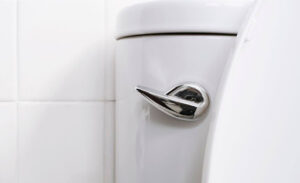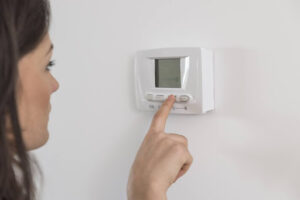
5 Common Toilet Noises and What They Mean
Our daily lives are filled with noise — some pleasant, like music or laughter, and others more disruptive. In the midst of life’s chaos, few
This week we celebrate National Indoor Plant Week, established to increase public awareness on the benefits of keeping plants inside the home. In addition to helping clean the air, studies have also shown that plants positively affect both the psychological and physical health of a household. The fall is an ideal time to incorporate plants into the home. As the days grow shorter and the weather gets cooler, families tend to stay inside longer.
Introducing plants into the home will help keep the indoor air quality (IAQ) healthy and promote a more positive and active winter for the household. There are several plants that are ideal for the home including English Ivy, Bamboo Palm, Golden Pothos and the Rubber Tree. A trip to your local green house or home improvement store will provide many more plants to consider. Universal Home Experts has put together some tips for keeping plants healthy inside your Houston home.
Remember that south-facing windows receive more light than ones that face the north. Before placing plants in east or west-facing windows, assess how much light each receives in the morning or afternoon. Too much light can potentially damage an indoor plant. Keep in mind that plants with brightly colored foliage will require more light than others.
Some indoor plants have a tendency to dry out too quickly after watering. This promotes dry, dead areas and stunted growth. To combat this common problem, consider repotting the dry plant in a pot with a wet sponge embedded in the soil. By adding a wet sponge to the bottom of a pot before adding the soil, you’ll help keep it moist longer – and prevent water from creeping out the bottom of the pot if you overwater.
Some plants flourish when acidic coffee or tea grounds are added to their soil. Ferns, gardenias, rhododendrons, hydrangeas, camellias and many others benefit from the natural acidity and nutrients that coffee grounds or tea leaves add to the soil. Just be aware that gnats and other small insects are attracted to the same nutrients and can become a nuisance in homes.
Soda water is great way to help plants flourish as well. The minerals in soda water have been proven to help most plants thrive in the home. Consider giving your plants a refreshing drink of soda water once a week. Believe it or not, the water used to boil eggs is also a nutrient-rich solution for indoor plants. After boiling, let the water cool and then use it to hydrate all of your indoor plants.
Using ice cubes to water plants is an old trick to ensure that the water is evenly distributed throughout the soil. Place the cubes around the plant (without touching the plant itself). As the ice slowly melts, it gradually releases the water into the soil.
The humidity level can lower in the fall and winter, which isn’t healthy for your indoor plants. It can especially tricky when Houston homes need to turn on their heaters (which is rare). Try to keep your indoor humidity set at a minimum of 50 degrees in the fall and winter months. Spraying plants with water is not a good way to promote humidity. If you are having problems with low indoor humidity, consider putting a portable humidifier in the room.
Keep plants away from windows, doors and other areas of your home that might be drafty. If plants are kept close to areas that have improper insulation, it’s the same as keeping them outside. You will also want to make sure your indoor plants are not placed near heating elements such as air ducts or radiators. The heat will dry out the soil and compromise the health of the plant.
You can keep your indoor plants thriving by adding the proper balanced fertilizer. Most houseplants do well with 10-10-10 fertilizer (the numbers stand for nitrogen, phosphorous and potassium). However, you can take a more focused route when fertilizing your plants as well. Flowering plants do better with a fertilizer high in potassium while foliage plants prefer one higher in nitrogen.
This fall, help maintain a healthy IAQ with indoor plants placed throughout your home. They can help reduce stress, filter out toxins in the air and assist those with sleep problems. Remember that the professionals at Universal Home Experts can also help if you are having problems maintaining a healthy IAQ. Call us at (713) 364-0226 to schedule an assessment today!

Our daily lives are filled with noise — some pleasant, like music or laughter, and others more disruptive. In the midst of life’s chaos, few

When we use our heating systems, we expect them to quietly do their jobs — warming our homes to a comfortable temperature. But when your

Keeping your HVAC system in good shape isn’t just about staying cool in the summer or toasty during winter — it’s about long-term savings, avoiding